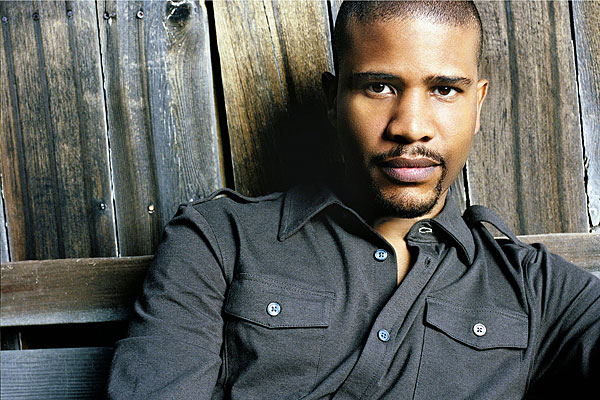
In May 2010, the Concord jazz label brought together three of its brightest players—the saxophonist David Sanchez, the vibraphonist Stefon Harris, and the trumpeter Christian Scott—for the first time for a trip to Havana, Cuba. Armed with just a handful of tunes and bulging folders of travel documentations, the Americans met up with the young Cuban pianists Rember Duharte and Harold Lopez-Nussa to record the outstanding 2011 album and documentary Ninety Miles. Sanchez and Harris bring the Ninety Miles Project to Symphony Center on Friday, November 30. Chicago sat down with David Sanchez to discuss the project.
What was it about the Ninety Miles Project that most appealed to you?
Before I even heard the details about traveling to Cuba and playing with some of these great young players down there, I was immediately drawn in by the chance to play with Stefon [Harris] and Chris [Scott]. These are guys—Stefon in particular—with whom I had crossed paths over and over throughout the past ten or fifteen years, but somehow we had never actually played together.
Much of your previous work has been dedicated to exploring the music of your native Puerto Rico through a jazz lens. What were some of the similarities and differences you found in working with Cuban sounds and rhythms?
There are a lot of similarities, of course, since most of the music from the Caribbean region shares a basis in the African rhythms. For me, being the only one of us three actually from that area, it was kind of like going home, both musically and culturally. But the Cuban players definitely had their own vibe going, and it was great to get a feel for that. Then you get Stefon adding his thing and Chris bringing some of that New Orleans feel, and it really turned into something special.
One of the standout tunes on the album, the plaintive ballad “The Forgotten Ones,” is actually a reworked version of your previously recorded composition. Did anything surprise you about how changed when played in this context by this group of musicians?
One thing about this project is that we met the Cuban musicians for the first time when we got to Havana. Then we had a total of six days to rehearse and record and perform this material, so it was a pretty hectic trip. I had actually brought down a different new composition to play, but because it was such a compressed period we decided to try a new version of “The Forgotten Ones” instead. It’s different from how I had done it before, and a nice change of pace from the rest of the songs, most of which are faster and more energetic.
You’ve had this project out on the road for over a year now. How has the music developed over that time?
When you’re out on the road, that’s when you find out if you’ve got chemistry or not. And it’s really been like ‘wow’ night after night. We’re settling into a great sound with our rhythm players and it’s amazing to hear how the music has evolved over time. Playing live is really how you start finding each other; it’s how you go from being a ‘project’ to a band.
Between frequent appearances with your own groups at the Jazz Showcase, Symphony Center, and the Chicago Jazz Festival, you’ve been a regular visitor to Chicago over the years. What’s your favorite thing about playing here?
Chicago is amazing. The audiences are so great and educated about the music, but more importantly they understand the music. I love playing in Chicago. If it wasn’t so cold, I would probably live here. I just don’t think I’m wired for those winters.
The Ninety Miles Project, with an opening solo piano set from Gonzalo Rubalcaba, plays Friday at 8:00pm at Symphony Center, 220 S. Michigan. $27-$87. cso.org.
Mark Loehrke is Chicago magazine’s Contributing Jazz Critic
Photograph: Devin DeHaven



